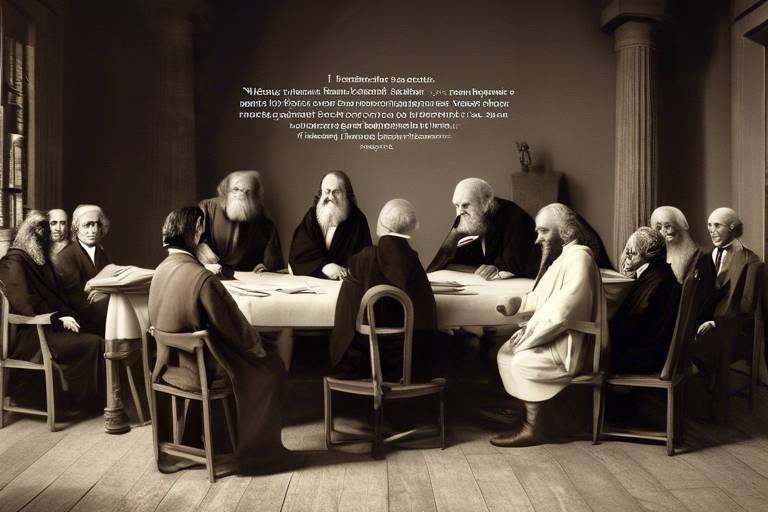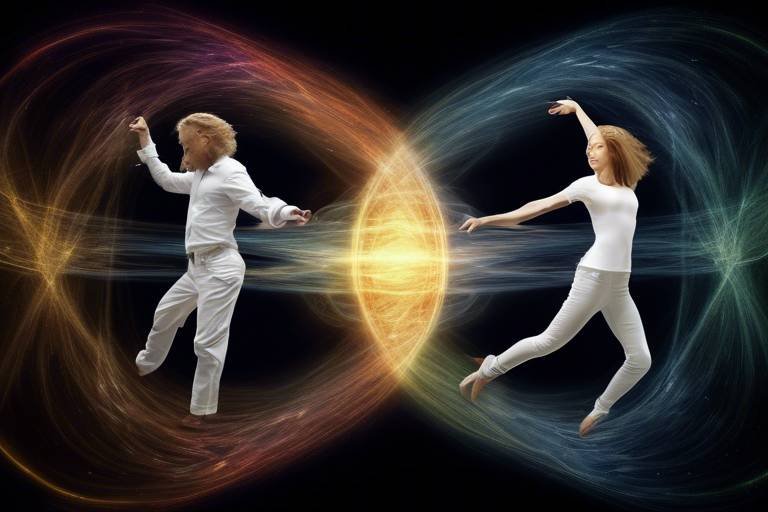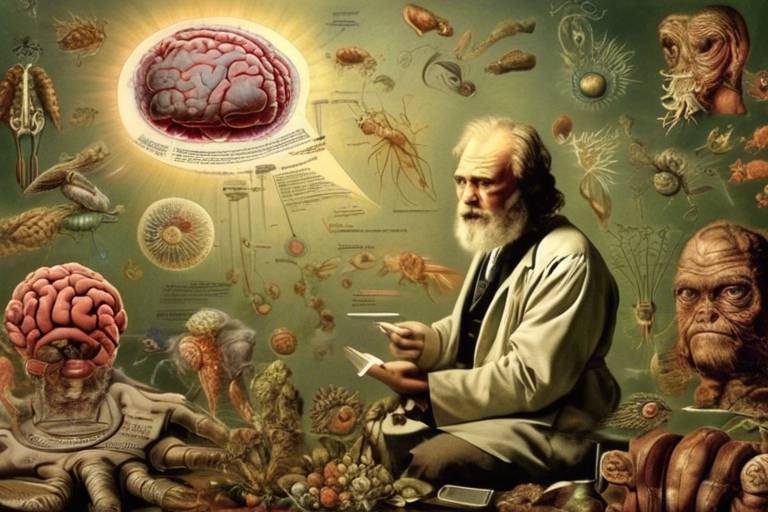The Puzzle of Dark Energy - A Philosophical Approach
Have you ever gazed up at the night sky and pondered the mysteries it holds? The vastness of the universe can be both awe-inspiring and daunting. At the heart of this cosmic enigma lies a concept that has baffled scientists and philosophers alike: dark energy. This mysterious force is believed to make up about 68% of the universe, yet its nature remains elusive. In this article, we will explore the implications of dark energy through a philosophical lens, blending the realms of science and existential inquiry. By examining the role of dark energy in the expansion of the universe, we can uncover profound questions about our existence, the nature of reality, and the limits of human understanding.
To grasp the philosophical implications of dark energy, we first need to understand what it is scientifically. Dark energy was proposed in the late 1990s when astronomers observed that the universe's expansion is accelerating. Unlike ordinary matter, which makes up stars, planets, and galaxies, dark energy is a force that seems to push galaxies apart. It acts as a sort of anti-gravity, driving the cosmic expansion at an ever-increasing rate. This discovery has significant consequences for our understanding of the universe, raising questions about its ultimate fate and the nature of reality itself.
As we delve deeper into the concept of dark energy, we encounter a plethora of philosophical questions that challenge our perceptions of existence and reality. What does it mean for something to exist if it cannot be observed directly? Is the universe simply a stage for human experience, or are we merely spectators in a grand cosmic play? Dark energy forces us to reconsider our place in the universe, prompting us to explore the following existential questions:
- What is the nature of reality in a universe dominated by unseen forces?
- How do we define existence in the context of dark energy?
- What implications does dark energy have for our understanding of life and consciousness?
Dark energy challenges our perceptions of existence. Imagine standing in a vast, empty room, and suddenly, the walls start to expand. You might feel a sense of unease, as if the very fabric of your reality is shifting. This is akin to how dark energy reshapes our understanding of the universe. It compels us to confront the uncomfortable reality that much of the universe is beyond our comprehension. As we grapple with these profound questions, we may find ourselves pondering the essence of life itself. Are we mere specks in an ever-expanding cosmos, or do we hold a unique significance within this grand tapestry?
Adopting a cosmic perspective can be transformative. Dark energy invites us to think about humanity's role in the universe. As we contemplate the vastness of space and time, we are reminded of our shared existence with countless stars and galaxies. This perspective can foster a sense of humility and interconnectedness, urging us to recognize that we are part of something much larger than ourselves. It challenges us to consider how our actions and choices resonate within the cosmic fabric.
Dark energy also highlights the boundaries of human knowledge. Despite our advancements in science, we are confronted with the reality that some mysteries may remain forever beyond our grasp. This acknowledgment can be both humbling and liberating. It encourages a philosophical inquiry into the nature of knowledge itself. Is it enough to seek answers, or should we also embrace the questions? Dark energy exemplifies the limits of scientific inquiry, prompting us to explore the philosophical implications of such limitations.
As we navigate the complexities of dark energy, we find intriguing connections between astrophysics, philosophy, and other disciplines. The study of dark energy fosters a collaborative approach to understanding complex questions. For instance, physicists and philosophers alike grapple with the implications of a universe driven by forces we cannot see. This interdisciplinary dialogue enriches our understanding of reality, encouraging us to explore the intersections of science, philosophy, and even art.
One of the most fascinating aspects of dark energy is its relationship with time. The expansion of the universe, accelerated by dark energy, may influence our understanding of temporal dynamics. Traditionally, we have viewed time as linear—past, present, and future. However, the implications of dark energy challenge this notion, suggesting that time may be more fluid and interconnected than we previously thought.
Incorporating dark energy into cosmological models reshapes our understanding of time. It suggests that the universe is not static but rather a dynamic entity, constantly evolving. This shift prompts us to reconsider how we measure time and its significance in the grand scheme of existence. As we explore these new frameworks for temporal analysis, we may uncover insights that redefine our relationship with time itself.
The philosophical theories of time must also evolve in light of dark energy. As we deepen our understanding of the universe, we may find that our traditional concepts of past, present, and future become inadequate. This evolution invites us to explore new philosophical paradigms that account for the complexities introduced by dark energy. How do these theories shape our understanding of existence? What new questions arise as we seek to comprehend the nature of time in a universe influenced by dark energy?
- What is dark energy? Dark energy is a mysterious force that makes up about 68% of the universe, driving its accelerated expansion.
- Why is dark energy important? It plays a crucial role in our understanding of the universe's fate and challenges our perceptions of reality.
- How does dark energy relate to time? Dark energy influences the expansion of the universe, which may reshape our understanding of temporal dynamics.
- What are the philosophical implications of dark energy? It raises profound questions about existence, reality, and the limits of human knowledge.

Understanding Dark Energy
Dark energy is one of the most captivating and perplexing phenomena in the realm of astrophysics. It was first identified in the late 1990s when astronomers observed that the universe is not just expanding, but that this expansion is accelerating. Imagine a balloon being blown up; at first, it expands slowly, but as more air is pumped in, it starts to inflate faster and faster. This is akin to what dark energy is doing to our universe. It constitutes about 68% of the universe's total energy density, yet we know remarkably little about it.
To grasp the concept of dark energy, we must first understand its role in the cosmos. Scientists define dark energy as a mysterious force that permeates space and drives the accelerated expansion of the universe. Unlike matter, which clumps together due to gravity, dark energy has a repulsive effect that pushes galaxies apart. This notion challenges our fundamental understanding of gravity and the universe's structure, prompting a reevaluation of existing theories.
The discovery of dark energy was made possible through observations of distant supernovae, which revealed that these stellar explosions were fainter than expected. This unexpected dimness indicated that they were farther away than previously thought, suggesting that the universe's expansion was accelerating. The implications of this discovery are profound, as it implies that the universe's fate may be dictated by this elusive force.
In the grand tapestry of the cosmos, dark energy introduces a new layer of complexity. While we can observe its effects, such as the increasing distance between galaxies, the true nature of dark energy remains shrouded in mystery. Scientists have proposed several theories to explain dark energy, including the cosmological constant, which posits that dark energy is a constant energy density filling space homogeneously, and dynamic models that suggest it may change over time.
Understanding dark energy is not just a scientific endeavor; it is a journey into the unknown that raises fundamental questions about the nature of reality itself. How can something so pervasive remain so elusive? What does it mean for our understanding of the universe if dark energy is indeed a significant player in shaping its destiny? These questions push the boundaries of human knowledge and compel us to consider the philosophical implications of our findings.
In summary, dark energy is a crucial element of modern astrophysics, representing a significant portion of the universe's total energy content and playing a critical role in its expansion. As we continue to study this enigmatic force, we may uncover not only the secrets of the universe but also insights into our own existence and the nature of reality.
- What is dark energy? Dark energy is a mysterious force that is believed to be responsible for the accelerated expansion of the universe.
- How was dark energy discovered? It was discovered through observations of distant supernovae that appeared dimmer than expected, indicating that the universe's expansion is accelerating.
- What percentage of the universe does dark energy comprise? Dark energy makes up about 68% of the universe's total energy density.
- What are the theories regarding dark energy? The main theories include the cosmological constant and dynamic models that suggest dark energy may change over time.

The Philosophical Implications
Dark energy is not just a scientific enigma; it serves as a profound catalyst for philosophical inquiry. As we grapple with the implications of this mysterious force, we are compelled to confront some of the most pressing questions about our existence and the nature of reality itself. What does it mean for something so intangible to wield such immense influence over the cosmos? The very essence of dark energy challenges our understanding of the universe and invites us to reconsider our place within it.
At its core, dark energy raises existential questions that push the boundaries of human thought. It forces us to ponder the nature of existence—are we mere observers in a vast, indifferent universe, or do we play a role in the cosmic dance? The realization that dark energy is driving the universe apart leads to a startling conclusion: our understanding of reality is not static but rather a constantly evolving narrative. This notion can be both liberating and daunting, as it suggests that our grasp on the universe is perpetually shifting, much like the galaxies that drift away from us.
When we consider the implications of dark energy, we inevitably encounter questions that probe the very fabric of our being. For instance, if the universe is expanding at an accelerating rate due to dark energy, what does this mean for the concept of time? Are we witnessing the slow unraveling of our cosmic tapestry, or is this expansion a signal of new beginnings? Each answer leads to further questions, creating a philosophical maze that can leave us feeling both exhilarated and bewildered.
Moreover, dark energy challenges the very notion of human significance. In a universe where vast stretches of space are filled with this unseen force, one might wonder: does our existence matter? Are we simply a fleeting thought in the grand narrative of the cosmos, or do we have a role to play in shaping its future? These inquiries prompt us to reflect on our responsibilities as stewards of knowledge and existence, urging us to seek deeper connections with the universe around us.
Dark energy also shifts our cosmic perspective. It invites us to step back and view our existence through a wider lens. Imagine standing on a beach, gazing at the horizon where the ocean meets the sky. The vastness of the water can evoke feelings of insignificance, yet it also inspires awe. Similarly, dark energy forces us to confront the enormity of the universe and our role within it. Are we merely grains of sand on an infinite shore, or do we have the potential to influence the tides of cosmic evolution?
Perhaps one of the most profound implications of dark energy is its demonstration of the limits of human knowledge. As we strive to understand this elusive force, we are reminded that there are boundaries to what we can comprehend. The universe may hold secrets that are beyond our current grasp, and dark energy exemplifies this beautifully. It serves as a reminder that while scientific inquiry is a powerful tool, it is not infallible. We must embrace the uncertainty and remain open to new ideas and possibilities, recognizing that our understanding will always be a work in progress.
In light of these philosophical implications, dark energy becomes more than a scientific concept; it transforms into a mirror reflecting our deepest existential concerns. By engaging with these ideas, we not only deepen our understanding of the universe but also enrich our journey as conscious beings navigating the mysteries of existence.
- What is dark energy? Dark energy is a mysterious force that is believed to be responsible for the accelerated expansion of the universe.
- How does dark energy affect our understanding of the universe? It challenges traditional concepts of space and time, prompting new philosophical inquiries about existence and reality.
- What are the philosophical implications of dark energy? Dark energy raises existential questions about our significance in the cosmos and highlights the limits of human knowledge.
- Can dark energy influence the future of the universe? Yes, its effects on cosmic expansion may shape the ultimate fate of the universe.

Existential Questions
When we ponder the mysteries of the universe, dark energy emerges as a significant player, raising profound about our very existence. What does it mean to be alive in a universe that is not only vast but also ever-expanding? It challenges our understanding of reality, making us wonder if our lives are mere specks in a cosmic ocean. The implications of dark energy force us to confront the idea that our universe is not static; it's dynamic and continually evolving, which can be both exhilarating and terrifying.
Imagine standing on a beach, watching the waves crash against the shore. Each wave represents a moment in time, a fleeting experience, just like our lives. Dark energy is like the unseen force that pushes those waves outward, suggesting that the universe is not just a backdrop for our existence but an active participant in our journey. This perspective compels us to ask ourselves:
- What is our purpose in this ever-expanding universe?
- Are we merely observers, or do we have a role to play in the cosmic narrative?
- How does our understanding of existence shift when we consider the implications of dark energy?
These questions don't have straightforward answers, and that's where the beauty lies. They invite us to engage in a dialogue about our place in the cosmos. Dark energy, with its mysterious nature, serves as a reminder of the limits of our understanding. It nudges us to consider that perhaps our existence is intertwined with the fabric of the universe in ways we cannot fully comprehend. Just as dark energy drives the expansion of the universe, it also expands the boundaries of our existential inquiries.
Moreover, the very act of questioning our existence in light of dark energy can be a liberating experience. It encourages us to embrace the uncertainty of life and to find meaning in the questions themselves rather than seeking definitive answers. In this sense, dark energy becomes a metaphor for the unknowns we encounter in our lives. It teaches us that while we may not grasp the entirety of the universe's mysteries, the pursuit of understanding can be profoundly enriching.
As we grapple with these existential questions, we can draw connections to various philosophical traditions. For instance, existentialism encourages us to confront the absurdity of existence and to create our own meaning in a seemingly indifferent universe. Dark energy, with its enigmatic nature, aligns well with this philosophical stance, reminding us that the search for meaning is a journey, not a destination.
Ultimately, the existential questions raised by dark energy challenge us to reflect on our lives, our choices, and our connections to one another and the universe. They push us to look beyond the surface and to consider the deeper implications of our existence in a cosmos that is as mysterious as it is magnificent.
1. What is dark energy?
Dark energy is a mysterious force that is believed to be responsible for the accelerated expansion of the universe. It makes up about 68% of the universe, yet its nature remains largely unknown.
2. How does dark energy affect our understanding of existence?
Dark energy prompts us to reconsider our place in the universe, challenging our perceptions of reality and existence. It raises questions about the nature of life itself and the limits of human understanding.
3. Can dark energy be measured or observed directly?
While dark energy cannot be observed directly, its effects can be inferred through observations of distant galaxies and the cosmic microwave background radiation.
4. What philosophical implications arise from dark energy?
Dark energy raises questions about the nature of reality, existence, and the limits of human knowledge, inviting interdisciplinary discussions between science and philosophy.

Cosmic Perspective
When we ponder the vastness of the universe, it's like gazing into an infinite ocean where each star is a distant island, and dark energy is the unseen current that propels everything forward. This cosmic perspective challenges our very understanding of existence. Imagine standing on a beach, watching the waves roll in and out; now, consider that the universe is doing something similar, but on a grander scale, expanding and shifting in ways that we are only beginning to comprehend. Dark energy, which constitutes about 68% of the universe, is the mysterious force driving this expansion, and it beckons us to rethink our place in this grand cosmic tapestry.
As we delve deeper into the implications of dark energy, we start to realize that it reshapes not only our scientific models but also our philosophical outlook. Are we mere observers in a universe that is constantly evolving, or do we play a part in its narrative? This question stirs a sense of wonder and curiosity, pushing us to explore the very fabric of reality. Dark energy acts as a reminder that the universe is not static; instead, it is a dynamic entity, constantly in flux, urging us to embrace our role as participants in this cosmic drama.
Furthermore, the concept of dark energy compels us to confront the idea of human significance within the universe. Are we just a tiny blip in the cosmic timeline, or do our thoughts and actions ripple through the fabric of existence? This perspective can be both humbling and exhilarating. It invites us to consider our responsibilities not just to ourselves or our planet, but to the universe as a whole. The realization that we are part of something much larger than ourselves can be a source of inspiration, prompting us to seek knowledge and understanding beyond our immediate surroundings.
In this context, the cosmic perspective also leads us to contemplate the interconnectedness of all things. Just as dark energy influences the expansion of the universe, our actions can influence the world around us. This interconnectedness can be illustrated through a simple analogy: think of a spider's web, where each thread is vital to the structure's integrity. If one thread is pulled, the entire web responds. Similarly, our existence is intertwined with the cosmos, suggesting that every thought, action, and decision contributes to the broader narrative of the universe.
Ultimately, embracing a cosmic perspective encourages us to adopt a more holistic view of existence. It pushes us to ask profound questions about our purpose and our relationship with the universe. As we navigate through life, the mysteries of dark energy remind us that there is so much more to discover, not just in the stars above but within ourselves. The cosmic dance of dark energy invites us to explore the unknown, to challenge our perceptions, and to redefine what it means to exist in a universe that is ever-expanding.
- What is dark energy? Dark energy is a mysterious force that makes up about 68% of the universe and is responsible for its accelerated expansion.
- How was dark energy discovered? Dark energy was inferred from observations of distant supernovae that suggested the universe is expanding at an increasing rate.
- What are the philosophical implications of dark energy? Dark energy raises questions about existence, reality, and humanity's role in the universe, challenging our understanding of knowledge and perception.
- How does dark energy influence our understanding of time? The expansion of the universe influenced by dark energy may reshape our concepts of time and its flow within cosmological models.
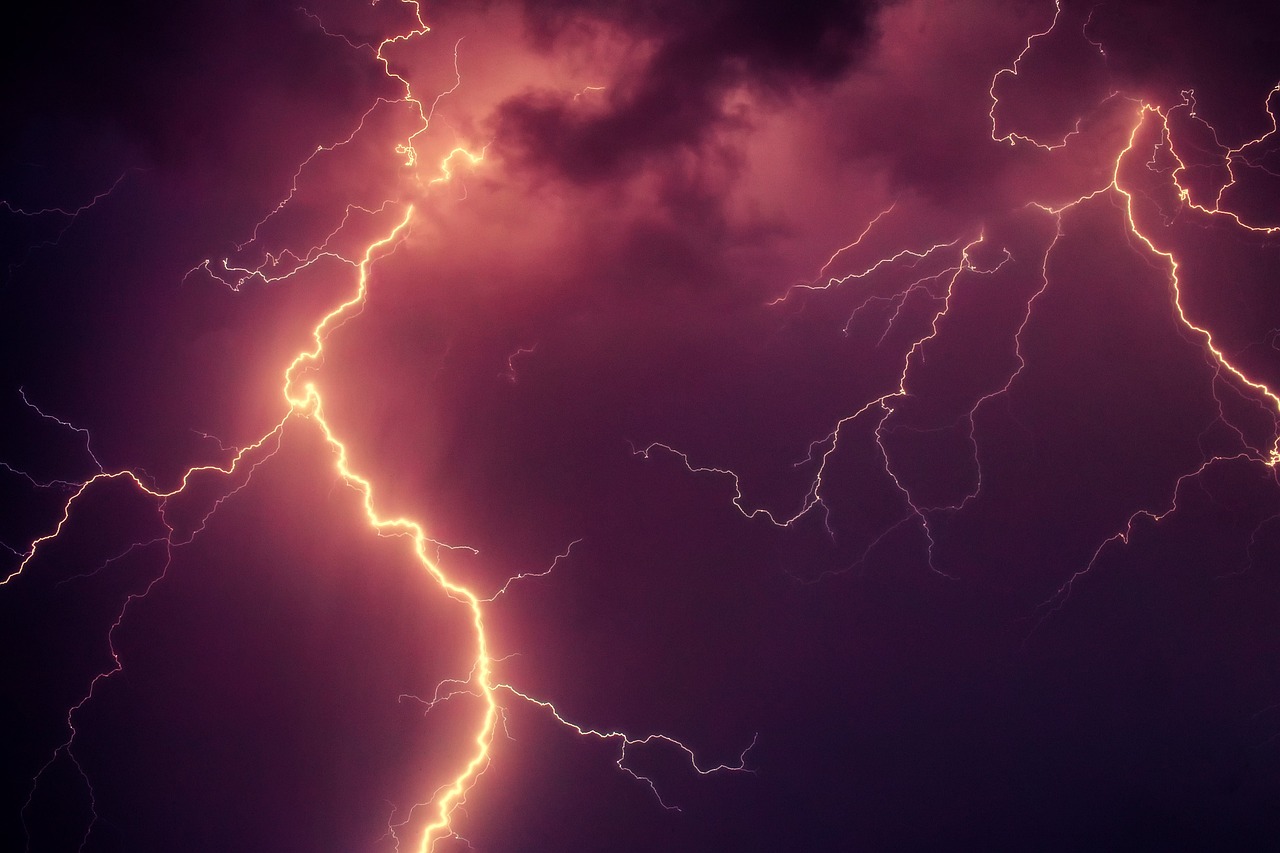
Limits of Knowledge
When we ponder the vastness of the universe and the mysterious force of dark energy, we inevitably confront the limits of human knowledge. It's a humbling realization, akin to standing at the edge of an infinite ocean, where each wave represents a question that may never find its answer. Dark energy, which constitutes approximately 68% of the universe, is a prime example of how much we still have to learn. Despite our advancements in technology and science, dark energy eludes our grasp, making us wonder: how far can we truly go in understanding the cosmos?
The complexity of dark energy challenges not just our scientific understanding but also our philosophical perspectives. It raises profound questions about the very nature of knowledge itself. Are we merely scratching the surface of a deeper reality? Or are we destined to remain in a perpetual state of ignorance regarding the universe's fundamental workings? As we delve deeper into the realms of astrophysics, we realize that the more we discover, the more we uncover layers of uncertainty.
To illustrate this point, consider the following aspects that highlight the limits of our understanding:
- Conceptual Frameworks: Our current models of physics, while robust, are still based on assumptions that may not hold true in the context of dark energy. For instance, the equations governing gravity and motion may need revision to account for this elusive force.
- Technological Constraints: The tools we use to observe and measure the universe have their limitations. For example, telescopes can only capture a fraction of the light and energy emitted by celestial bodies, leaving vast areas of knowledge shrouded in darkness.
- Philosophical Boundaries: The inquiry into dark energy not only challenges scientific boundaries but also philosophical ones. What does it mean to know something? Is knowledge finite, or does it expand indefinitely as we learn more?
These elements underscore the notion that while we strive to understand dark energy, we must also acknowledge the epistemological barriers that exist. The pursuit of knowledge is a journey filled with twists and turns, where each answer often leads to more questions. In this sense, dark energy serves as a reminder of our place in the universe—a place that is both significant and infinitesimal.
Moreover, the limits of knowledge compel us to adopt a more interdisciplinary approach. By merging insights from various fields—such as philosophy, physics, and even art—we can foster a richer dialogue about the mysteries of existence. This collaboration can illuminate the shadows of our understanding, revealing new pathways to explore the unknown.
Ultimately, the enigma of dark energy invites us to embrace uncertainty as an integral part of our quest for knowledge. Instead of viewing our limitations as failures, we should see them as opportunities for growth and discovery. After all, the universe is a vast puzzle, and every piece we uncover brings us closer to understanding the bigger picture, even if some pieces will always remain just out of reach.
- What is dark energy? Dark energy is a mysterious force that is believed to be responsible for the accelerated expansion of the universe.
- Why is dark energy important? It plays a crucial role in our understanding of the universe's structure and fate, making it a central topic in contemporary astrophysics.
- How does dark energy relate to philosophy? Dark energy raises profound questions about existence, reality, and the limits of human understanding, prompting philosophical inquiry.
- Can we measure dark energy? While we cannot directly observe dark energy, scientists infer its existence through its effects on the universe's expansion.
- What are the implications of dark energy for the future of the universe? Dark energy suggests that the universe will continue to expand indefinitely, potentially leading to a 'Big Freeze' scenario.
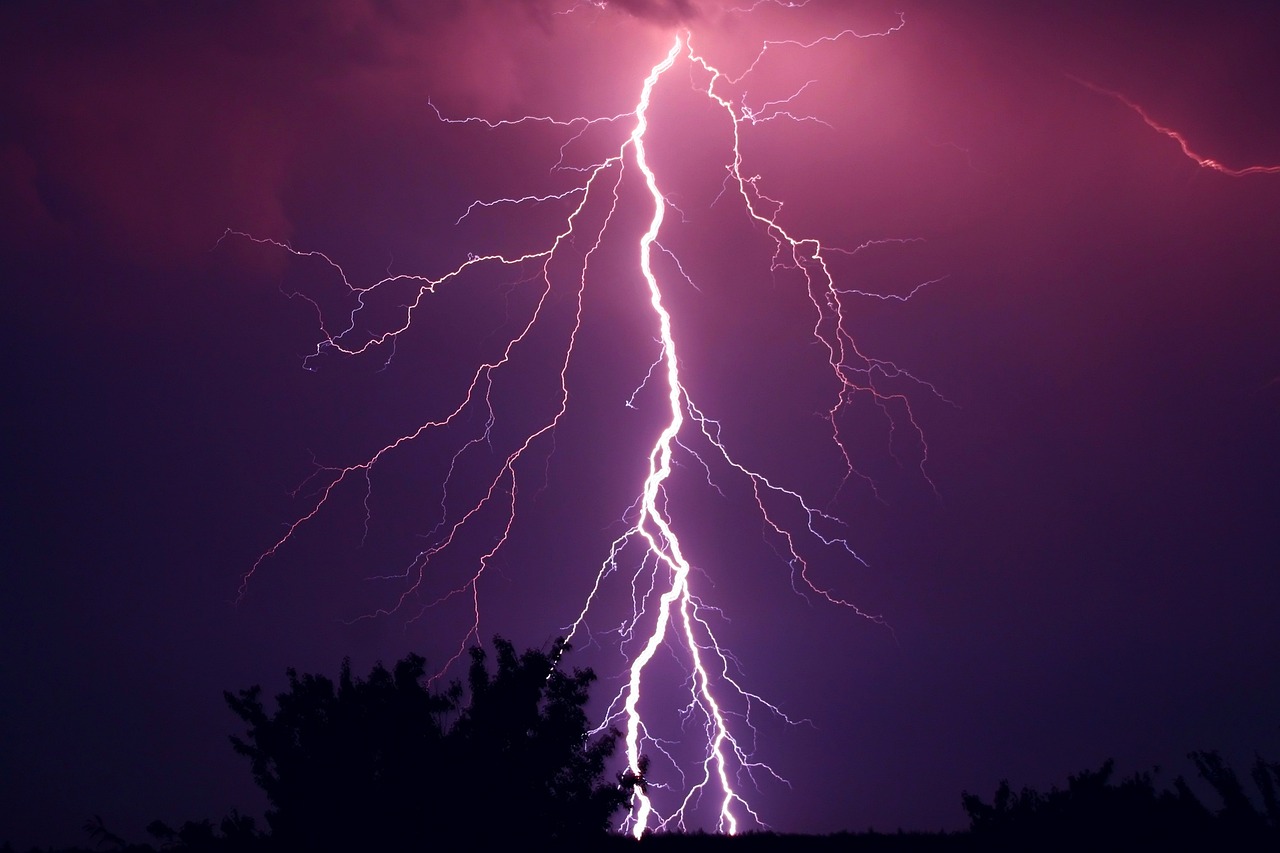
Interdisciplinary Connections
When we delve into the concept of dark energy, we find ourselves standing at the crossroads of various disciplines, where astrophysics, philosophy, and even theology intersect. This intersection is not merely a meeting point; it’s a vibrant tapestry of ideas that enriches our understanding of the universe and our place within it. Dark energy, which constitutes about 68% of the universe, poses questions that transcend scientific inquiry and invite philosophical contemplation. For instance, how do we reconcile the overwhelming vastness of the cosmos with our individual experiences? This question is not just scientific; it has profound philosophical implications.
Astrophysicists are primarily concerned with the mechanics of dark energy—its properties, how it influences the expansion of the universe, and its potential origins. However, as they unravel the mysteries of dark energy, they often find themselves grappling with questions that are fundamentally philosophical. For example, the notion of an expanding universe invites us to ponder the nature of infinity: Is the universe truly infinite, or does it have boundaries we have yet to comprehend? Such inquiries require a collaborative effort, where scientists and philosophers work hand-in-hand to explore the implications of their findings.
Moreover, the study of dark energy can also draw in theologians who may interpret the implications of an expanding universe through the lens of creation and existence. Questions arise such as: If the universe is ever-expanding, what does that mean for the concept of a creator? Does it challenge traditional religious views of a static universe? The dialogue between these disciplines creates a rich environment for exploring existential questions that are crucial for understanding both the cosmos and our human experience.
In addition to philosophy and theology, dark energy has connections to psychology as well. The vastness of the universe can evoke feelings of insignificance or wonder in individuals. How do these feelings shape our understanding of existence? Does contemplating dark energy alter our mental frameworks? These questions are ripe for exploration, suggesting that interdisciplinary connections can lead to deeper insights into the human condition.
To illustrate the interdisciplinary nature of dark energy, consider the following table that highlights the key areas of focus across different fields:
| Discipline | Focus Area | Key Questions |
|---|---|---|
| Astrophysics | Mechanics of Dark Energy | What is dark energy? How does it affect the universe's expansion? |
| Philosophy | Existential Implications | What does an expanding universe say about our existence? |
| Theology | Creation and Existence | How does dark energy influence religious perspectives on creation? |
| Psychology | Human Perception | How does the vastness of the universe affect our mental frameworks? |
In conclusion, the study of dark energy is not confined to the realm of astrophysics; it opens up a dialogue that spans multiple disciplines. As we continue to explore these connections, we not only enhance our scientific knowledge but also deepen our understanding of existence itself. This collaborative approach fosters a richer comprehension of the universe, challenging us to think beyond traditional boundaries and embrace a more integrated perspective on reality.
- What is dark energy? Dark energy is a mysterious force that is believed to be responsible for the accelerated expansion of the universe.
- How does dark energy affect the universe? It contributes to the universe's expansion, influencing the rate at which galaxies move apart from one another.
- Why is dark energy important to philosophy? Dark energy raises profound questions about existence, reality, and the limits of human understanding.
- Can dark energy be measured? While it cannot be directly observed, its effects can be inferred through the study of cosmic phenomena.
- What disciplines are involved in studying dark energy? Astrophysics, philosophy, theology, and psychology all contribute to a deeper understanding of dark energy.

Dark Energy and Time
Dark energy is not just a fascinating concept in astrophysics; it also has profound implications for our understanding of time. As scientists delve deeper into the mysteries of the universe, they are beginning to realize that the expansion driven by dark energy may alter our perceptions of time itself. Imagine time as a river flowing through the cosmos, with dark energy acting as a force that changes its current. This transformation invites us to reconsider how we perceive temporal dynamics in a universe that is constantly stretching and evolving.
One of the most intriguing aspects of dark energy is its influence on the rate of the universe's expansion. As galaxies move apart at an accelerating pace, it raises questions about the very fabric of time. Could it be that our traditional understanding of time—linear and absolute—needs to be reexamined? As we explore this idea, we find ourselves pondering how the universe's expansion affects everything from the life cycle of stars to the potential future of our own existence.
In cosmology, the relationship between dark energy and time can be likened to a dance. Just as dancers adjust their movements to the rhythm of the music, cosmic entities must adapt to the ever-changing tempo of the universe. This dance is not only a physical phenomenon but also a philosophical inquiry. Are we merely spectators in this cosmic ballet, or do we play an active role in shaping the future of time itself? These questions challenge us to think beyond conventional boundaries and embrace the complexity of the universe.
To further illustrate the connection between dark energy and time, consider the following table that outlines the key concepts:
| Concept | Description |
|---|---|
| Dark Energy | A mysterious force causing the accelerated expansion of the universe. |
| Cosmic Expansion | The increasing distance between galaxies over time. |
| Temporal Dynamics | The relationship between time and the expansion of the universe. |
| Philosophical Inquiry | Exploration of the implications of dark energy on our understanding of existence. |
In light of these concepts, we must also consider how advancements in cosmological models are reshaping our understanding of time. Traditional models often depict time as a constant, but the influence of dark energy suggests that time may be more fluid than we once thought. This shift challenges us to think about time in new ways, urging us to explore alternative frameworks that account for the dynamic nature of the universe.
Moreover, the philosophical implications of dark energy extend to our understanding of time itself. Philosophers have long debated the nature of time—whether it is an illusion, a construct of human consciousness, or a fundamental aspect of reality. With the advent of dark energy, these discussions are taking on new urgency. As we uncover more about the universe's expansion, we may find that our theories of time evolve, leading us to a deeper understanding of both the cosmos and our place within it.
In conclusion, the interplay between dark energy and time presents a fascinating opportunity for both scientists and philosophers. As we continue to explore the mysteries of the universe, we are reminded that our understanding of time is not static; it is a living, breathing concept that adapts alongside our growing knowledge. So, the next time you gaze up at the stars, consider this: time is not just a measure of moments; it is a reflection of the universe's ever-changing story.
- What is dark energy? Dark energy is a mysterious force that is causing the accelerated expansion of the universe.
- How does dark energy affect time? Dark energy may alter our traditional understanding of time by influencing the rate at which the universe expands.
- What are the philosophical implications of dark energy? Dark energy raises questions about the nature of existence, reality, and our place in the universe.
- Can our understanding of time change? Yes, as we learn more about dark energy and the universe, our theories and perceptions of time may evolve.

Time in Cosmology
When we think about time, we often envision it as a linear progression—past, present, and future, neatly lined up like books on a shelf. However, when we step into the realm of cosmology, particularly in the context of dark energy, this perception becomes intriguingly complicated. Dark energy, which is believed to make up about 68% of the universe, has profound implications for how we understand time. As the universe expands at an accelerating rate, our traditional notions of time may need a serious overhaul.
One of the most fascinating aspects of dark energy is how it challenges our understanding of cosmological time. In cosmology, time is not merely a backdrop against which events unfold; it is intertwined with the very fabric of the universe. The expansion driven by dark energy suggests that distant galaxies are moving away from us at an increasing speed, leading to the concept of an accelerating universe. This has led scientists to propose new models of time that reflect this dynamic, rather than static, reality.
To grasp this concept, we can look at the implications of an expanding universe on our perception of time:
- Relative Time Dilation: In a universe where expansion is accelerating, time can be experienced differently depending on your location in space. This means that what seems like a moment for one observer could be an eternity for another.
- Future Predictions: The accelerating expansion raises questions about the ultimate fate of the universe. Will time continue indefinitely, or will it come to a halt in a distant future? This uncertainty invites us to reevaluate how we think about our own temporal existence.
- Cosmic Horizon: As galaxies recede beyond our observational reach, we encounter the concept of the cosmic horizon, which limits our understanding of the universe's timeline. This boundary suggests that there is a limit to what we can know about the past and future of the cosmos.
Moreover, the interplay between dark energy and time leads to philosophical ponderings about the nature of existence itself. If time is not a fixed entity but rather a fluid concept shaped by cosmic forces, what does that mean for our individual lives? Are we merely fleeting moments in a vast, ever-changing tapestry? This philosophical inquiry compels us to reflect on our place in the universe and the significance of our experiences.
In essence, the relationship between dark energy and time is a dance of complexities. As cosmologists work to unravel the mysteries of dark energy, they also challenge us to reconsider the very foundations of time. The more we learn, the more we realize that time in cosmology is not just a measure of change, but a profound reflection of our existence and the universe's grand narrative.

Philosophy of Time
The is a captivating field that invites us to ponder the very essence of existence and the universe. As we delve into the implications of dark energy, we find ourselves confronted with profound questions about time. What is time, really? Is it a mere measurement of change, or is it something more intrinsic to the fabric of reality? The discovery of dark energy, which propels the universe's expansion, compels us to reconsider our traditional notions of time as linear and absolute. Instead, we might begin to see time as a dynamic and fluid concept, intertwined with the cosmos itself.
Consider this: if dark energy is driving the universe apart at an accelerating rate, how does that influence our understanding of past, present, and future? In a universe that is constantly expanding, the events of the past seem more distant, while the future looms ever larger and more uncertain. This perspective challenges the classical view of time as a straight line, suggesting instead that time could be experienced as a curved dimension, much like the space that dark energy influences. This idea invites us to explore time not just as a sequence of moments, but as a complex interplay of events shaped by cosmic forces.
Philosophers have long debated various theories of time, each offering unique insights into its nature. For instance, the presentist view posits that only the present moment is real, while the past and future are mere abstractions. In contrast, the eternalist perspective suggests that all points in time—past, present, and future—are equally real. With the implications of dark energy, one might argue that the eternalist view gains traction, as the universe's expansion creates a vast tapestry of time that transcends our limited human experience.
Moreover, the concept of time in relation to dark energy also raises questions about causality. If the universe is expanding and time is fluid, how do we understand cause and effect? Are events predetermined, or do they emerge from the chaotic interplay of cosmic forces? These questions push us to the limits of our understanding, challenging us to think critically about the nature of reality itself.
To illustrate the complexity of these ideas, consider the following table that summarizes different philosophical perspectives on time:
| Philosophical Perspective | Description |
|---|---|
| Presentism | Only the present moment is real; the past and future are not. |
| Eternalism | All points in time are equally real; past, present, and future coexist. |
| Relational Theory | Time is a relation between events, not an independent entity. |
| Block Universe Theory | The universe is a four-dimensional block where time is just another dimension. |
As we explore the philosophy of time in the context of dark energy, we are reminded that our understanding of the universe is still evolving. Each discovery leads us to new questions, urging us to engage in a dialogue between science and philosophy. This interplay not only enriches our comprehension of time but also deepens our appreciation for the mysteries that lie beyond our grasp.
- What is dark energy? Dark energy is a mysterious force that drives the accelerated expansion of the universe.
- How does dark energy relate to time? Dark energy influences our understanding of time by challenging traditional linear models and suggesting a more dynamic, interconnected view.
- What are the main philosophical theories of time? The main theories include presentism, eternalism, relational theory, and block universe theory.
- Why is the philosophy of time important? It helps us understand our place in the universe and the nature of reality, especially in the face of cosmic mysteries like dark energy.
Frequently Asked Questions
- What is dark energy?
Dark energy is a mysterious form of energy that makes up about 68% of the universe. It is believed to be responsible for the accelerated expansion of the universe, acting against the force of gravity. Despite its significant presence, dark energy remains largely unexplained and is one of the biggest puzzles in modern astrophysics.
- How was dark energy discovered?
The concept of dark energy emerged in the late 1990s when astronomers observed distant supernovae. They expected these explosions to be slowing down due to gravity, but instead, they found that the universe's expansion was accelerating. This surprising discovery led to the hypothesis of dark energy as a driving force behind this acceleration.
- What are the philosophical implications of dark energy?
Dark energy raises profound questions about the nature of reality and existence. It challenges our understanding of the universe and our place within it, prompting existential inquiries about life and the limits of human knowledge. The very existence of dark energy suggests that there are aspects of the universe that may forever remain beyond our grasp.
- How does dark energy affect our understanding of time?
The relationship between dark energy and time is complex. As the universe expands, our understanding of time may shift, challenging traditional notions of temporal dynamics. Dark energy could influence how we perceive the flow of time and might lead to new frameworks for analyzing temporal relationships in cosmology.
- Can dark energy be measured or observed directly?
Currently, dark energy cannot be observed directly. Instead, its effects are inferred through measurements of the universe's expansion rate and the cosmic microwave background. Researchers use various observational techniques, including galaxy clustering and supernova data, to study the implications of dark energy indirectly.
- What are the limits of our knowledge regarding dark energy?
Dark energy exemplifies the boundaries of human understanding in cosmology. While we have made significant strides in observing its effects, the fundamental nature of dark energy remains elusive. This highlights the philosophical implications of scientific inquiry, reminding us of the mysteries that still lie beyond our current knowledge.
- How does dark energy connect to other scientific disciplines?
Dark energy fosters interdisciplinary connections between astrophysics, philosophy, and other fields. By exploring the implications of dark energy, scientists and philosophers can collaborate to address complex questions about the universe, existence, and the nature of reality, leading to a richer understanding of both science and philosophy.




